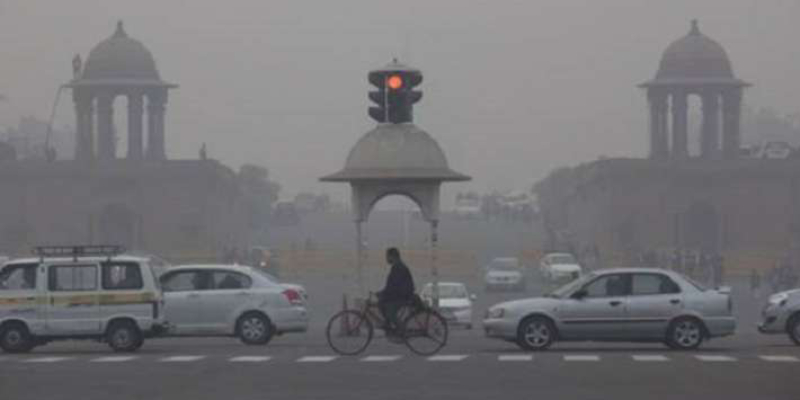The air quality in Delhi continues to deteriorate. Pollution curbs likely to be strict

As raging farm fires and stagnant atmospheric conditions pushed the capital’s air quality index to the edge of the “severe plus” category, the skies over Delhi-NCR took on an ominous grey hue.
Air pollution in Delhi-NCR continues to worsen as a result of unfavourable meteorological conditions such as slower wind speeds and an increase in farm fire incidents. On Friday morning, a thick layer of haze blanketed the Delhi sky, and the national capital was suffering from’severe plus’ air quality, with an Air Quality Index (AQI) of 472. The AQI near ITI Jahangirpuri was 550 at 7 a.m., followed by 562 in Noida (UP), 539 in Gurugram (Haryana), and 563 near Delhi University.
The overall air quality in Delhi is expected to remain in the’severe’/’severe plus’ category until November 5, according to the dynamic model and weather forecast, prompting authorities to implement the final stage of anti-pollution measures, including a ban on diesel-powered light motor vehicles.
The Commission for Air Quality Management, a statutory body established in 2021 to combat air pollution in Delhi and surrounding areas, stated in an order that state governments may make decisions on the closure of educational institutions, non-emergency commercial activities, and odd-even vehicle plying. According to the CAQM, the federal and state governments may decide to allow work from home. It believed that Stage IV of the Graded Response Action Plan (GRAP) should be implemented immediately in order to prevent further deterioration of overall air quality in the national capital region.
The GRAP is a collection of anti-air pollution measures that will be implemented in Delhi-NCR based on the severity of the situation. It categorises air quality in the Delhi-NCR into four stages: stage 1 is “poor” (AQI 201-300), stage 2 is “very poor” (AQI 301-400), stage 3 is “severe” (AQI 401-450), and stage 4 is “severe plus” (AQI above 450).
The following are the anti-pollution measures that are likely to be implemented in Delhi:
The entry of trucks other than electric and CNG trucks and those carrying essential commodities has been prohibited in Delhi under GRAP stage IV.
The use of 4-wheeler diesel LMVs is prohibited in the NCT of Delhi and the Districts of the NCR bordering Delhi, except for BS-VI vehicles and vehicles used for essential/emergency services.
Closing all industries in NCR, including those in areas without PNG infrastructure or supply but still using fuels other than those on the standard list of approved NCR fuels.
Industries producing milk and dairy products, as well as those producing life-saving medical equipment/devices, drugs, and medicines, will be exempt from the above restrictions.
Construction and demolition (C&D) activities are prohibited in linear public projects such as highways, roads, flyovers, over bridges, power transmission, pipelines, and so on.
NCR State Governments/ GNCTD to decide on allowing public, municipal, and private offices to work at 50% capacity and the rest to work from home.